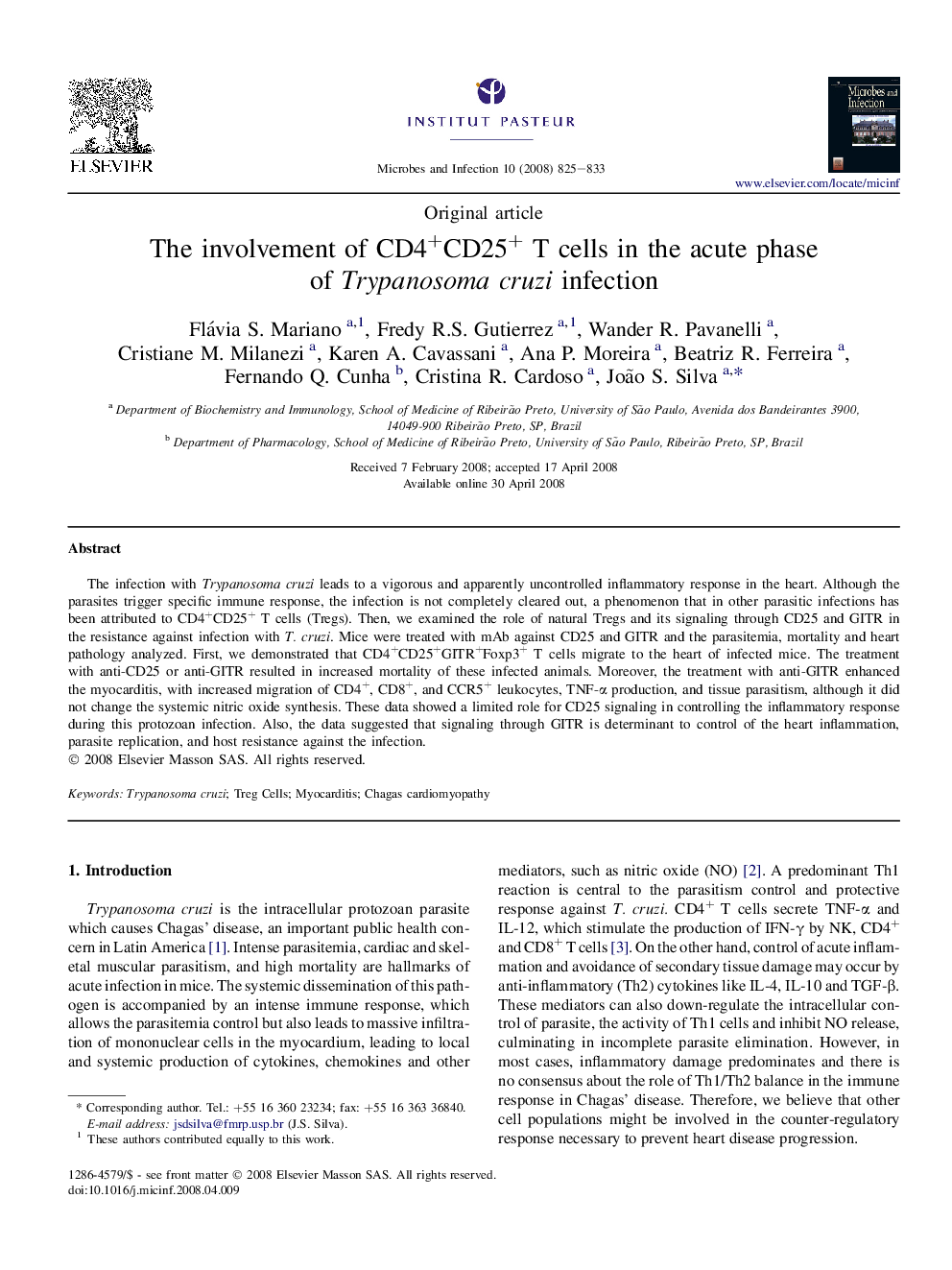| Article ID | Journal | Published Year | Pages | File Type |
|---|---|---|---|---|
| 3415997 | Microbes and Infection | 2008 | 9 Pages |
Abstract
The infection with Trypanosoma cruzi leads to a vigorous and apparently uncontrolled inflammatory response in the heart. Although the parasites trigger specific immune response, the infection is not completely cleared out, a phenomenon that in other parasitic infections has been attributed to CD4+CD25+ T cells (Tregs). Then, we examined the role of natural Tregs and its signaling through CD25 and GITR in the resistance against infection with T. cruzi. Mice were treated with mAb against CD25 and GITR and the parasitemia, mortality and heart pathology analyzed. First, we demonstrated that CD4+CD25+GITR+Foxp3+ T cells migrate to the heart of infected mice. The treatment with anti-CD25 or anti-GITR resulted in increased mortality of these infected animals. Moreover, the treatment with anti-GITR enhanced the myocarditis, with increased migration of CD4+, CD8+, and CCR5+ leukocytes, TNF-α production, and tissue parasitism, although it did not change the systemic nitric oxide synthesis. These data showed a limited role for CD25 signaling in controlling the inflammatory response during this protozoan infection. Also, the data suggested that signaling through GITR is determinant to control of the heart inflammation, parasite replication, and host resistance against the infection.
Related Topics
Life Sciences
Immunology and Microbiology
Immunology
Authors
Flávia S. Mariano, Fredy R.S. Gutierrez, Wander R. Pavanelli, Cristiane M. Milanezi, Karen A. Cavassani, Ana P. Moreira, Beatriz R. Ferreira, Fernando Q. Cunha, Cristina R. Cardoso, João S. Silva,
